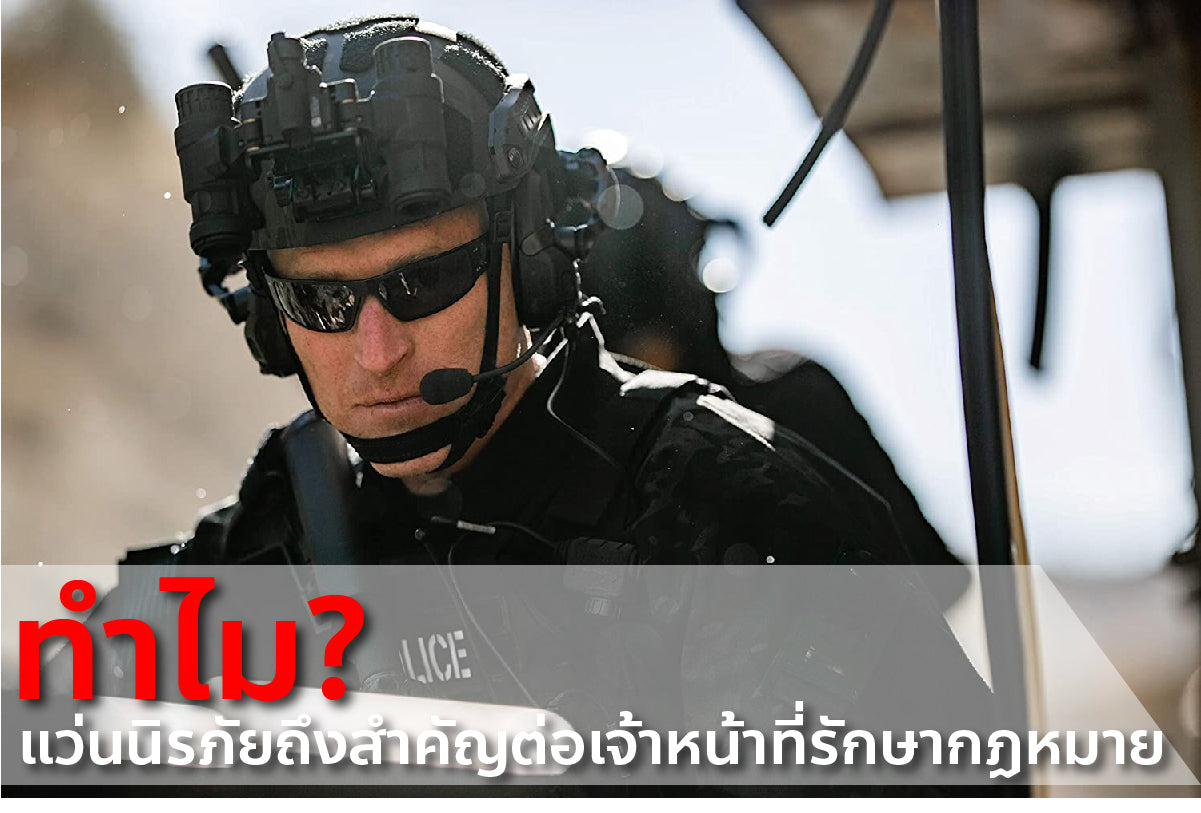Why Safety Glasses Are Important for Law Enforcement Officers
The risk of eye injury to officers is present at almost every time they work, not just when shooting a gun.
When a serious incident occurs due to the actions of law enforcement officers, and after the incident is over, the incident is reviewed to summarize and develop lessons learned. In the review process, the person in charge will search for information, look at the facts and overall circumstances of the incident, the level of experience of those involved, and environmental factors such as the stress of the officers during the crisis.
Typically, after-incident summaries do not blame the individuals involved, but rather try to find lessons from the incident. The straightforward summary of the information is crucial to the future safety of other officers.

In this article, the author provides an example of a police confrontation with a criminal that the author was involved in debriefing, in which two officers sustained injuries to their eyes and faces from shattered glass and metal when their vehicle was hit by the criminal. While this article is not intended to find fault with the actions of those involved, the author sees this incident as an important example of the need for officers to consider wearing safety glasses at all times while on duty.
A key theme in any police defense or skills training is “preparedness.” You need to be prepared for what might happen when you’re on the job or in the event of a crisis. This is why it’s important to have a bulletproof vest and other gear on your belt because you never know what you’re going to encounter on the job. The same goes for wearing safety glasses. In recent years, our friends in the military have proven that wearing safety glasses can save valuable eyesight. So, police officers, who are at risk of eye injuries almost every time they’re on the job, should be wearing them as well. Safety glasses can protect your eyes in situations like:
- Hazardous substances in the air, such as pepper spray, blood, saliva, and other hazardous liquids.
-When searching in buildings or forest areas
-In low light situations (with clear lenses)
-During the incident, physical assault occurred
It's very difficult to predict every situation where safety glasses can protect your eyes, but remember, it's always better to have them on hand than not have them when you need them.

Of course, some people think, “I’ll use it if my unit provides it.” The author then asks, “What are you going to sacrifice while waiting for it to be provided?” This is true. In the field, there are many essential pieces of equipment that you will need to perform this difficult task, and often you will have to provide them yourself (even though the unit has to provide them). However, the author would like to recommend that when purchasing these items, quality and longevity are the primary considerations. Choose the best you can afford for your future and for your own safety.
Good safety glasses should meet at least the U.S. National Standards Institute's ANSI/ISEA Z87.1 2015 standard or the U.S. Military Standard (MIL-STD) section MIL PRF 32432A. In addition to standard impact resistance, other considerations when selecting safety glasses should include functionality, comfort, and ease of cleaning.
There are many types of safety glasses on the market, some with interchangeable lenses, some with polarized lenses or prescription lenses. But no matter which you choose, remember that aesthetics should always be the final consideration.
''Take care to protect your eyes as you would the rest of your body. Invest in a pair of reliable safety glasses. Wear them. For your own good, that's my advice.''
Sergeant Major (Ret.) Robert Bemis retired in 2017 as a supervisor in the Operations Training Division at the Pennsylvania State Police Academy in Hershey. With more than 30 years of law enforcement experience, Bemis spent more than a decade as an instructor specializing in officer safety. He is the author of “Forged in Scars & Stripes: A Trooper's Victory Over Critical Injury.” Bemis is currently the Director of Training at NSENA VR.
Translated and compiled from
https://www.police1.com/police-products/apparel/eyewear/articles/ballistic-eyewear-see-the-need-for-safety-AGekleChINRpND3v/

